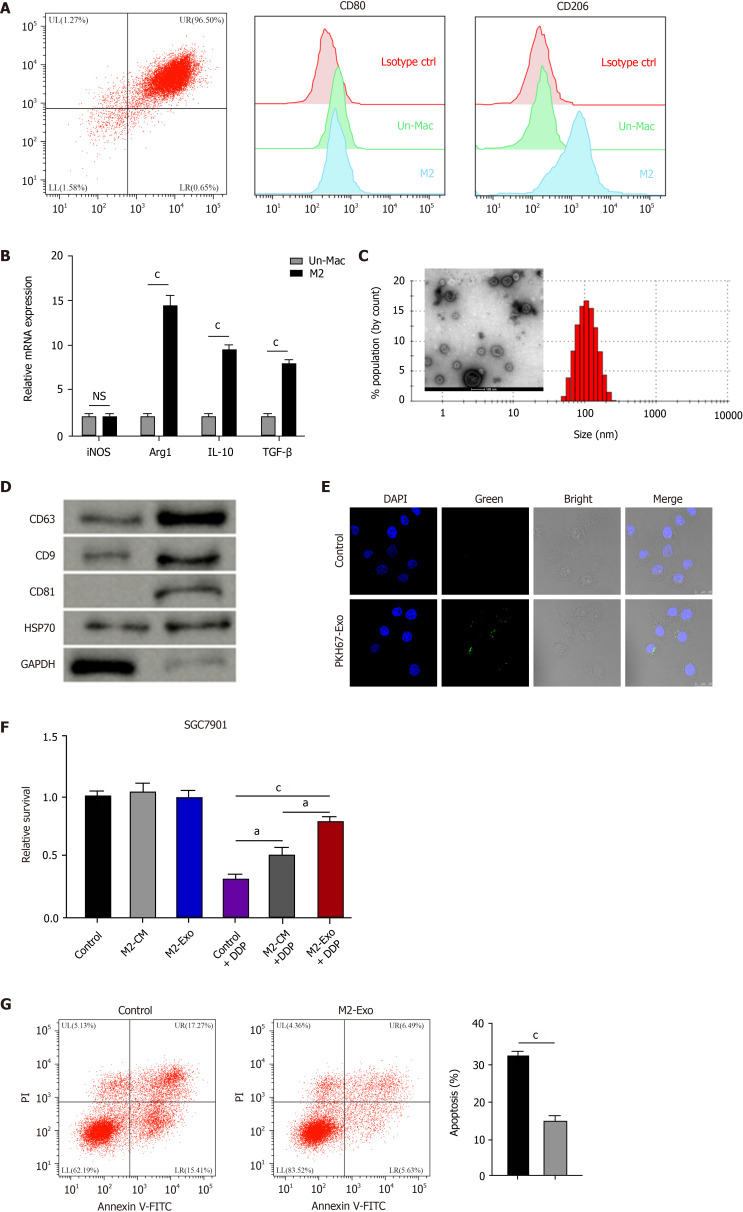Figure 1.
M2 polarized macrophages-derived exosomes can transfer in gastric cancer cells to enhance cisplatin resistance. A and B: Flow cytometry for identifying the M2 polarized macrophages isolated from murine bone marrow induced with interleukin (IL)-13 and IL-4. The M2 specific marker CD206 was identified. Un-Mac represents inactivated macrophages and M2 represents macrophages activated by IL-13 and IL-4. The mRNA expression of iNOS, Arg1, IL-10, and TGF-β was detected by qPCR in Un-Mac and M2 macrophages; C: Identification of exosomes from M2 macrophages by transmission electron microscopy; D: Detection of expression of CD63, CD9, CD81, HSP70, and GAPDH by Western blot analysis; E: Detection of uptake of the PKH67-labelled M2 exosomes (M2-Exo) in SGC7901 cells; F: Analysis of cell viability by CCK-8 assay. M2 macrophages-derived conditioned medium and M2-Exo were used to treat SGC7901 cells exposed to cisplatin (DDP) for 48 h; G: Analysis of cell apoptosis by flow cytometry SGC7901 cells were co-treated with DDP and M2-Exo. Data shown are the mean ± SD. aP <0.05; cP < 0.001. DDP: Cisplatin; Un-Mac: Inactivated macrophages; M2-Exo: M2 exosomes.

